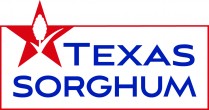On the Road Again – On Wednesday, September 28 the Texas House Committee on Transportation held an interim hearing to discuss ongoing concerns with cargo weight limits and truck axle regulations. Present Texas Transportation code prevents any vehicle from operating on a public highway or port-of-entry to Mexico if it has:
1) A single axle weight over 20,000 lbs
2) A tandem axle weight over 34,000 lbs
3) An overall gross weight over 80,000 lbs
The committee heard testimony advising for and against raising those limit. Business and manufacturing trade association representatives, citing their industries’ projected production growth, proposed increasing the above weight limits. Trucking industry representatives, however, expressed concerns about the safety of heavier loads, which would have less stable centers of gravity and greater potential for damage in the case of a crash. The trucking industry said they would not support any weight increases without mandating six axles for those loads. it was brought to the committee’s attention that Texas is in fact the only state that doesn’t allow six-axle trucks to enter ports. Even adding extra axles, though, is accompanied by concerns for truckers’ safety in situations involving inclement weather. The financial burden for repairing the stress to roads that would result from these increased loads was not a central issue of discussion in this hearing, but it continues to be a significant obstacle to advancing any legislation on the issue.
Texas Water Hearing – On October 13, the Texas House Agriculture & Livestock Committee and Natural Resources Committee held a joint hearing to discuss “the sources of water used by Texans in the production of food and fiber, and examine the current water delivery methods and water conservation goals for agricultural use.” The committee heard testimonies from representatives of commodity organizations and water conservation groups.
The committees made it clear that they appreciate the conservation efforts that producers undertake to ensure future generations of Texans have access to water. The testimonies were primarily concerned with addressing the efficiency of existing delivery methods and evaluating the best avenues for government to assist in improving that efficiency.
Although existing water delivery methods already achieve high levels of efficiency – often losing less than 10 percent of water in most systems – the committees and testimonies agreed that there is always room for improvement. For instance, due to exorbitant costs, not all producers are able to purchase the most effective, high-tech water conservation equipment on the market. Kody Bessent, of Plains Cotton Growers, emphasized the importance of cost-sharing government programs when it comes to expanding access to these technologies.
The discussion was focused on agricultural water use, but Rep. Lyle Larson (R – San Antonio) remarked that urban areas such as his district ought to do a better job learning from the conservation efforts in rural Texas. With water looming as a contentious issue in the upcoming 85th Legislative Session, Texas Grain Sorghum Association remains committed to protecting your rights to the most valuable resource we have.
Latin America Trade Team Coming to Texas – A team of 11 sorghum buyers and end users from Colombia and Peru will be in Texas October 19-21 to network with U.S. suppliers and to learn more about the state and national sorghum industry. The visit is hosted by USGC, USCP and TGSB. The team will arrive in the Houston area on October 19th and attend a mini sorghum seminar, tour two port facilities and then will make its way up to Fort Worth stopping at a sorghum farm en route. In Fort Worth, the team will tour and visit with three major sorghum supplier companies. The team will then depart for Detroit, Michigan to attend the U.S. Grains Council 2016 Export Exchange.
Texas Sorghum 2017 RFP – The Texas Grain Sorghum Board (TGSB) has released its 2017 Request for Proposals. Proposals are due by email to morgan@texassorghum.org on or before November 9, 2016. Proposals will be ranked and approved at the winter board meeting of TGSB to be held at the end of November in Amarillo. The board is concentrating on 12 priority areas, with the first prioirty focusing on sugarcane aphid resistant varieties in particular regions, and the promotion of those varieties to growers. If your proposal is chosen, the producer board would like all final reports to include an index size card that has an overall summary of the results found so that those may be copied and handed out to growers. To receive TGSB’s 2017 RFP document, please email morgan@texassorghum.org.








